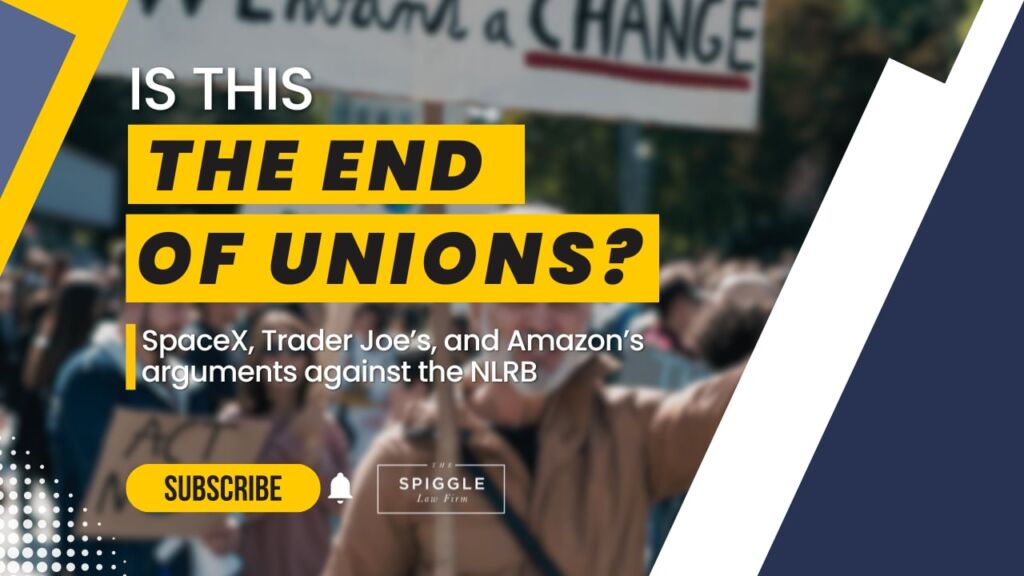Could This Be the End of Unions? SpaceX’s Lawsuit Against the NLRB Explained
In a major legal move, SpaceX, along with Amazon and Trader Joe’s, has taken aim at the National Labor Relations Board (NLRB), challenging its very existence in a lawsuit that could have wide-reaching implications for workers across the country. While the lawsuit may seem like just another corporate legal battle, its potential consequences are profound—particularly for unions and the rights of employees to speak up against workplace injustices.
What Is the NLRB and Why Does It Matter?
The NLRB is a federal agency tasked with protecting workers’ rights to form unions and engage in collective activities under the National Labor Relations Act. It serves as a crucial “referee,” overseeing disputes between employees and employers about working conditions, unfair treatment, and union-related issues. Even if you’re not in a union, the NLRB can protect your right to discuss issues like wages, discrimination, or safety concerns without fear of retaliation.
But that could all change. SpaceX’s lawsuit, backed by Amazon and Trader Joe’s, challenges the very constitutionality of the NLRB, arguing that its judges cannot be properly removed by the president, making the board itself unconstitutional. If successful, this lawsuit could drastically alter the future of workplace protections and the rights of millions of employees.
Why Did SpaceX Sue the NLRB?
The case started when nine SpaceX employees were fired after raising concerns about workplace conditions. They filed a complaint with the NLRB, which launched an investigation into SpaceX’s actions. However, instead of focusing on the firing of these employees, SpaceX and other companies have set their sights on the broader powers of the NLRB itself, arguing that its structure violates the U.S. Constitution. They claim that the current setup—where NLRB judges are difficult to remove—gives too much power to the agency, reducing presidential authority and oversight.
What Could This Mean for Workers?
If SpaceX and its allies win this case, the immediate outcome could see the NLRB stripped of its ability to enforce decisions in its current form. This could create chaos for unions and employees who rely on the board to resolve disputes. More broadly, the lawsuit is part of a larger movement to roll back the powers of federal agencies—a move that could dismantle crucial worker protections in industries nationwide.
For workers, this case is a reminder of just how precarious labor rights can be. If the NLRB is weakened or abolished, it could become much harder to unionize, address unfair workplace practices, or even raise collective concerns without risking your job. This affects not only union members but also non-union workers who rely on NLRB protections to speak out on issues like safety, pay, and discrimination.
What Happens Next?
The stakes are high, and the case could have ripple effects on other federal agencies beyond the NLRB. As companies like SpaceX and Amazon challenge the administrative power of federal agencies, the role of workers’ rights in America hangs in the balance. Should the courts rule in favor of these companies, we could witness a reshaping of labor relations as we know them.
For now, workers and employers alike should stay tuned to this unfolding case. As the NLRB fights for its survival, employees across the country must prepare for the possibility of significant changes in how workplace protections are enforced.
Stay Ahead of the Curve: Watch the Video for More Insights!




